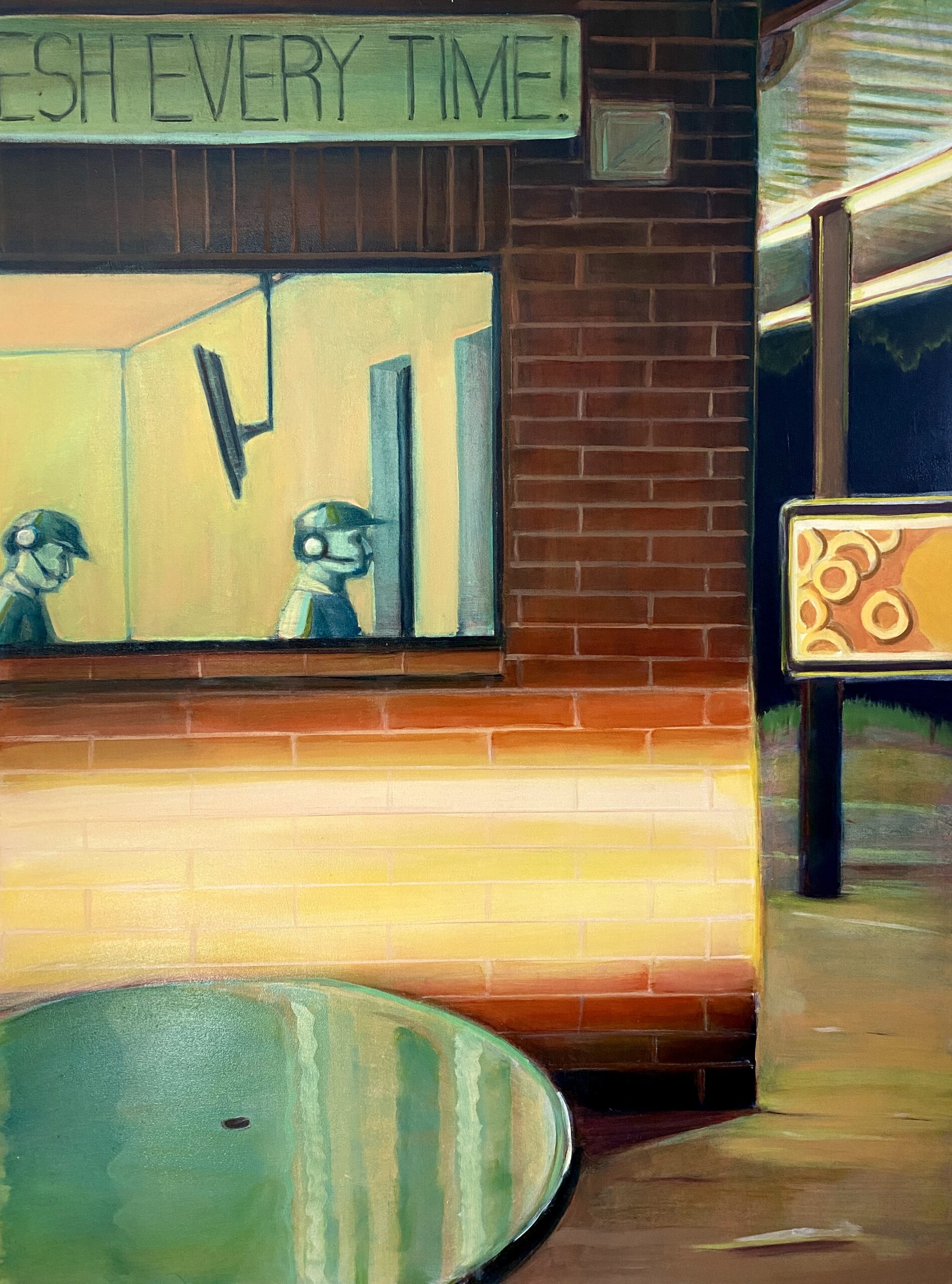Edna was alone making soap when she first saw the meat. It was early days—she cupped ashes from the hearth and boiled them in a cast-iron pot. She took brown paper packages tied with twine from the pantry and unwrapped them preciously, like Christmas presents, to reveal marbled slabs of fat. She skimmed the lye rising to the surface of the water, emptied the rest, and began to cook it into the fat. The mixture had softened to something like melted cheese when she heard the slap outside. It was raining hard, but the noise was sharp and clean, cutting through the drumming on the cottage’s tin roof: a hand making contact with an unsuspecting cheek.
Edna lived a couple miles from town at the end of a muddy, rutted road hemmed by red twig dogwood that crept, flaming and prickly, up the bases of the beech trees. She stood in the front doorway, one hand on the doorframe and the other twisting her apron, sucking in the sweet, wet air. Behind her, in the warmth of her home, the soap burbled gently like a contented infant. She held her breath and waited just one more moment. Then, it fell just a step beyond the porch: meat.
Without any mind for the rain, Edna rushed forward and crouched beside the inert mass, staring at it with anticipation, as if waiting for it to reanimate and dance a jig. It was a hunk of red flesh, about sixteen ounces, bloody and fresh. Edna looked up, blinking away raindrops. The grey sky, clotted with dark clouds, gave nothing away. She took her prize and retreated inside.
Edna rinsed the meat in a basin of rainwater and probed it with her index finger. It seemed like beef, but it could be venison. Then again, what did she know? It could be human. She forgot the soap until she smelled it burning and rushed to the hearth to take the pot off the fire when she glanced out the window and saw more meat fall. At that point, she knew it was God.
The pieces came down faster and faster, and she tucked them into the pockets of her dress and the fold of her apron and clutched them in her hands until after what felt like an hour of steady meat-fall, she was dripping rainwater onto her nicely swept floors and breathing hard. Before her, dominating the counter, was roughly one hundred and sixty-five pounds of meat.
When the sickening thud-crunch sounded on the porch, she knew it would be the last. She rushed outside like a woman rushing to greet her newlywed because that’s precisely what she was:there on the porch was his head, smiling only for her. Inside, the fat smoldered and congealed to a thick, black tar. Edna didn’t care—she would use it to glue her lover together, and finally, she wouldn’t be alone.
LOU GARDNER is a trans, queer, and bipolar writer from Southern California. He briefly studied at the MFA in Fiction at the University of Florida in Gainesville. His work has been published in Mid-American Review, Stonecrop Magazine, L’Esprit Literary Review, and the University of Essex’s Short Fiction. Gardner’s work has also placed first in Darling Axe’s 2021 First Page Challenge and the Tennessee Williams Literary Festival’s 2022 Very Short Fiction Contest. He lives in Los Angeles. You can find him on Instagram @formerbimbo.
The art that appears alongside this piece is by AMY RENEE WEBB.
